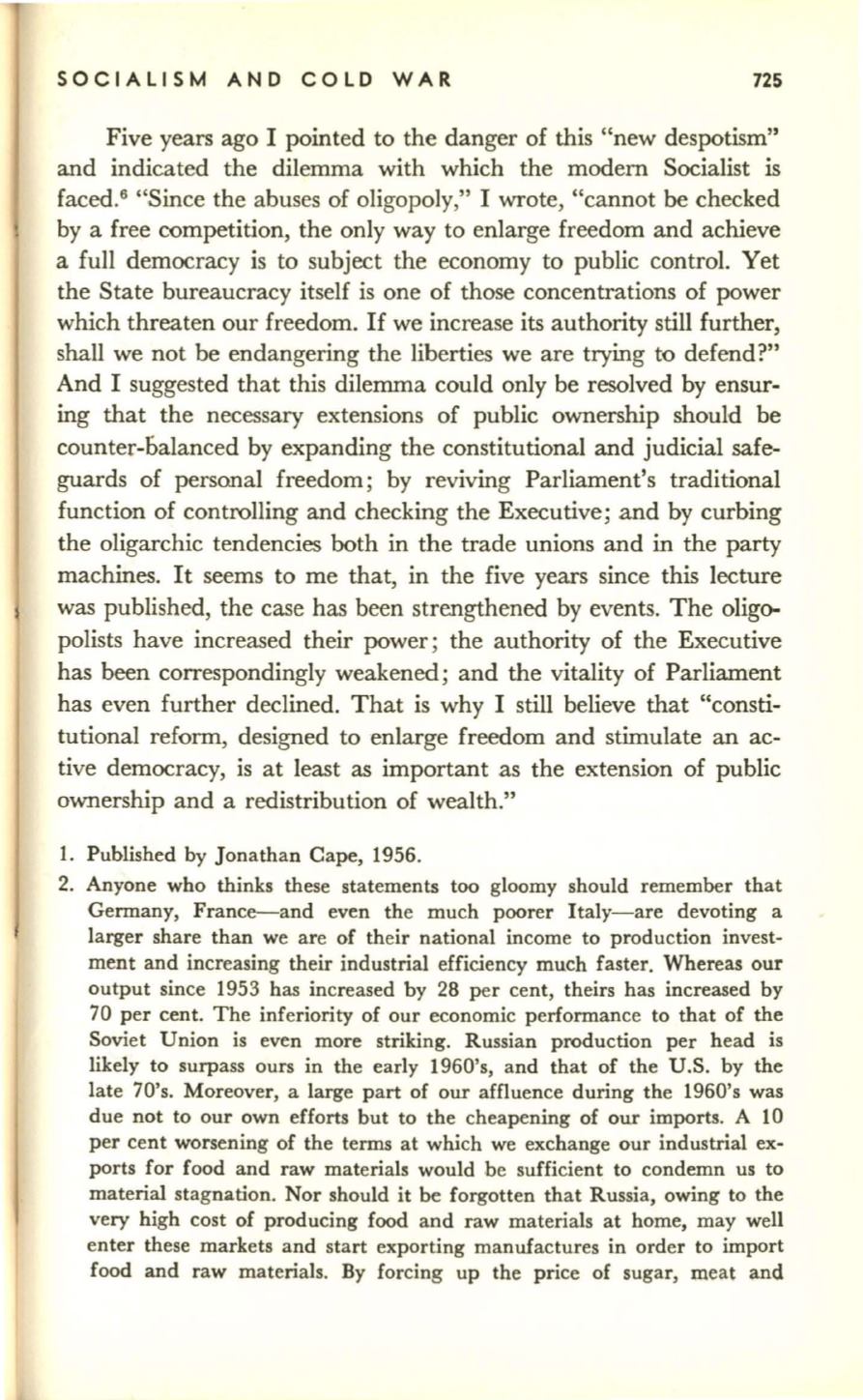
SOCIALISM AND COLD WAR
725
Five years ago I pointed to the danger of this "new despotism"
and indicated the dilemma with which the modern Socialist is
faced.
6
"Since the abuses of oligopoly," I wrote, "cannot
be
checked
by a free competition, the only way to enlarge freedom and achieve
a full democracy is to subject the economy to public control. Yet
the State bureaucracy itself is one of those concentrations of power
which threaten our freedom.
If
we increase its authority still further,
shall we not be endangering the liberties we are trying to defend?"
And I suggested that this dilemma could only be resolved by ensur–
ing that the necessary extensions of public ownership should be
counter-oalanced by expanding the constitutional and judicial safe–
guards of personal freedom; by reviving Parliament's traditional
function of controlling and checking the Executive; and by curbing
the oligarchic tendencies both in the trade unions and in the party
machines. It seems to me that, in the five years since this lecture
was published, the case has been strengthened by events. The oligo–
polists have increased their power; the authority of the Executive
has been correspondingly weakened; and the vitality of Parliament
has even further declined. That is why I still believe that "consti–
tutional reform, designed to enlarge freedom and stimulate an ac–
tive democracy, is at least as important as the extension of public
ownership and a redistribution of wealth."
1.
Published by Jonathan Cape, 1956.
2. Anyone who thinks these statements too gloomy should remember that
Germany, France-and even the much poorer Italy-are devoting a
larger share than we are of their national income to production invest–
ment and increasing their industrial efficiency much faster. Whereas our
output since 1953 has increased by 28 per cent, theirs has increased by
70 per cent. The inferiority of our economic performance to that of the
Soviet Union is even more striking. Russian production per head is
likely to surpass ours in the early 1960's, and that of the U.S. by the
late 70's. Moreover, a large part of our affluence during the 1960's was
due not to our own efforts but to the cheapening of our imports. A 10
per cent worsening of the terms at which we exchange our industrial ex–
ports for food and raw materials would be sufficient to condemn us to
material stagnation. Nor should it be forgotten that Russia, owing to the
very high cost of producing food and raw materials at home, may well
enter these markets and start exporting manufactures in order to import
food and raw materials. By forcing up the price of sugar, meat and


